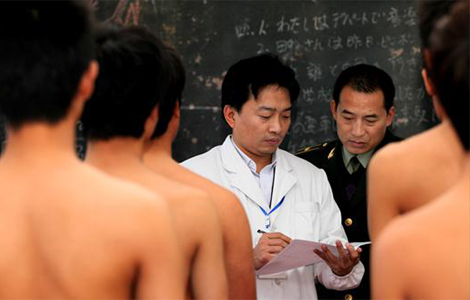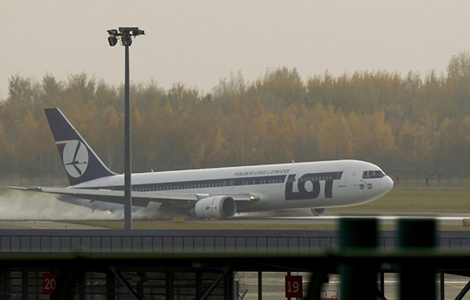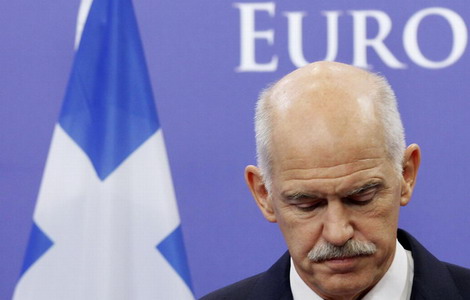Agreement an attempt to slow cross-Straits ties
Updated: 2010-02-01 07:28
By Xie Yu (China Daily)
|
|||||||||||
The United States arms sale to Taiwan is an attempt to slam the brakes on the rapidly warming cross-Straits ties, experts say.
On Friday the US government announced the proposed sale of a $6.4 billion arms package to Taiwan, including Patriot missiles, Black Hawk helicopters and minesweepers.
Ni Yongjie, a scholar at the Shanghai Institute of Taiwan Studies said the arms sale is an attempt by the US to "tighten its control over the cross-Straits relationship".
However, he added that,"The US does not want to return to the really nervous cross-Straits relations that existed during former Taiwan leader Chen Shui-bian's term, and it is willing to see both sides relieve hostility and avoid any possibility of war."
Cross-Straits relations have developed quickly since 2008 when Taiwan leader Ma Ying-jeou and his Kuomintang took power, he said, and the US wants to slow the process as a means to restrain the mainland and bring the whole situation under its control.
Taiwan and the mainland have signed 12 agreements in the past 20 months, covering issues like direct mail, shipping, flights, two-way investment and tourism. Exchanges and cooperation in culture and economic fields have also boomed.
The current tensions in the cross-Straits situation are actually a result of the US and Japan interfering in the growing relations between Taiwan and the mainland, said Ni, both sides need more time to accumulate more wisdom and courage to achieve the common benefits that will enable them to manage cross-Straits affairs without foreign pressure.
Wu Nengyuan, director of the Institute of Taiwan Studies at the Fujian Academy of Social Sciences said Taiwan should dump the Cold War mentality when dealing with the cross-Straits military issue. Taiwan leader Ma Ying-jeou said the arms sales "will let Taiwan feel more confident and secure".
However, Wu said Taiwan's true sense of security would only come from peaceful exchanges with the mainland and a sincere willingness to eliminate the possibility of war, rather than "carrying out an arms race with the mainland under the incitement of the US".
Wu says that Ma is paying the bill incurred by his predecessor, as the arms sale package was contracted in 2008 when Chen Shui-bian and the pro-independence Democratic Progressive Party (DPP) were in office.
"It is like a protection fee the DPP promised to the US for their support. But the price of the arms are much higher than the value and it is hard to say if this large 'investment' will trigger public dissatisfaction," Wu said.
Ni said Taiwan was "forced to buy" the arms, whether willing or not, due to its deep connections and dependence on the US, for its trade, military, culture, and contacts.
"Now the most vital task for both the mainland and Taiwan is to speed up integration and decide their own affairs by themselves."

Hot Topics
Libya conflict, Gaddafi, Oil spill, Palace Museum scandal, Inflation, Japan's new PM, Trapped miners, Mooncake tax, Weekly photos, Hurricane Irene
Editor's Picks

|

|

|

|

|

|












